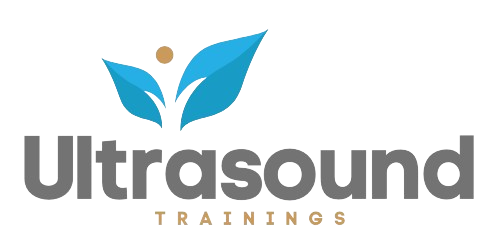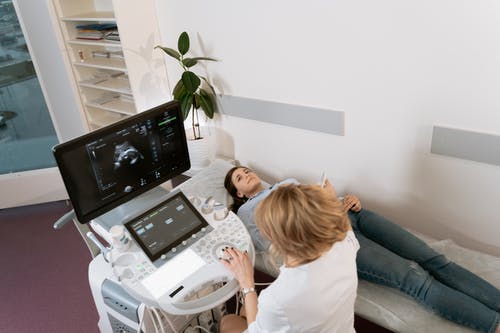As the scope of practice for nurse practitioners (NPs) expands, acquiring advanced skills like ultrasound imaging is becoming increasingly important. An ultrasound course for nurse practitioners equips healthcare professionals with the ability to perform point-of-care ultrasounds (POCUS) and improve patient care in various clinical settings. This article outlines the benefits, key components, and career advantages of completing an ultrasound course as a nurse practitioner.
Why Nurse Practitioners Should Pursue Ultrasound Training
Enhanced Diagnostic Capabilities
Ultrasound training enables nurse practitioners to perform bedside imaging, which significantly improves their diagnostic accuracy. Whether assessing fluid accumulation, guiding needle insertions, or evaluating organ function, ultrasound skills allow NPs to make real-time clinical decisions.
Increased Autonomy in Clinical Practice
With ultrasound training, NPs gain more autonomy in their roles, reducing reliance on other specialists for imaging results. This ability to independently perform and interpret ultrasound scans is particularly valuable in rural or underserved areas where access to radiologists may be limited.
Improved Patient Outcomes
By incorporating ultrasound into their clinical practice, nurse practitioners can provide quicker diagnoses, leading to more timely treatments and better patient outcomes. Ultrasound reduces the need for more invasive procedures and allows for immediate assessment in critical situations.
Key Components of an Ultrasound Course for Nurse Practitioners
Basic Ultrasound Principles
A foundational ultrasound course will cover the physics of ultrasound technology, including sound wave principles, image generation, and machine settings. This knowledge is essential for NPs to operate ultrasound equipment effectively and adjust settings for optimal image quality.
Point-of-Care Ultrasound (POCUS)
Point-of-care ultrasound, or POCUS, is a major focus of ultrasound courses for NPs. POCUS training enables nurse practitioners to use ultrasound at the bedside to quickly evaluate conditions such as abdominal pain, trauma, or shortness of breath. Key applications include lung, cardiac, and abdominal imaging.
Hands-On Training
Practical, hands-on training is crucial for mastering ultrasound techniques. Most courses offer live demonstrations and practice sessions with real patients or simulators. This allows nurse practitioners to develop skills in probe placement, image acquisition, and interpreting findings.
Specialized Modules
Advanced ultrasound courses often offer specialized modules tailored to specific areas of practice. For example, NPs working in women’s health may focus on obstetric and gynecological ultrasound, while those in emergency care may receive training in trauma and critical care imaging.
Career Benefits of Ultrasound Certification for Nurse Practitioners
Expanded Scope of Practice
Ultrasound certification expands a nurse practitioner’s scope of practice, allowing them to perform a broader range of clinical tasks. This includes ultrasound-guided procedures such as biopsies, injections, and fluid drainage, which can be done more efficiently with ultrasound.
Increased Marketability
Nurse practitioners with ultrasound training are highly sought after in a variety of healthcare settings, including emergency departments, primary care clinics, and specialized practices like cardiology or obstetrics. This skill set makes NPs more competitive in the job market and can lead to higher-paying positions.
Continuing Education and Professional Development
Completing an ultrasound course also fulfills continuing education requirements for nurse practitioners, ensuring they remain up-to-date with the latest advancements in medical imaging and patient care. It demonstrates a commitment to professional growth and quality care.
Choosing the Right Ultrasound Course for Nurse Practitioners
Accredited Programs
It’s essential to choose a course that is accredited by reputable medical organizations, such as the American Registry for Diagnostic Medical Sonography (ARDMS) or the Society of Diagnostic Medical Sonography (SDMS). Accredited programs ensure that the training meets industry standards and is widely recognized by employers.
Comprehensive Curriculum
Look for a course that offers a comprehensive curriculum, covering both basic and advanced ultrasound techniques. The course should also include ample hands-on practice to reinforce theoretical knowledge and develop practical skills.
Experienced Instructors
A high-quality ultrasound course should be taught by experienced instructors who are certified sonographers or physicians. Their expertise ensures that nurse practitioners receive accurate, in-depth guidance during training.
Conclusion
An ultrasound course for nurse practitioners is an invaluable investment for those looking to enhance their diagnostic and procedural skills. With training in point-of-care ultrasound, nurse practitioners can expand their scope of practice, improve patient care, and increase their professional opportunities. By choosing a reputable program that offers hands-on training and specialized modules, NPs will be well-equipped to integrate ultrasound technology into their clinical practice.


